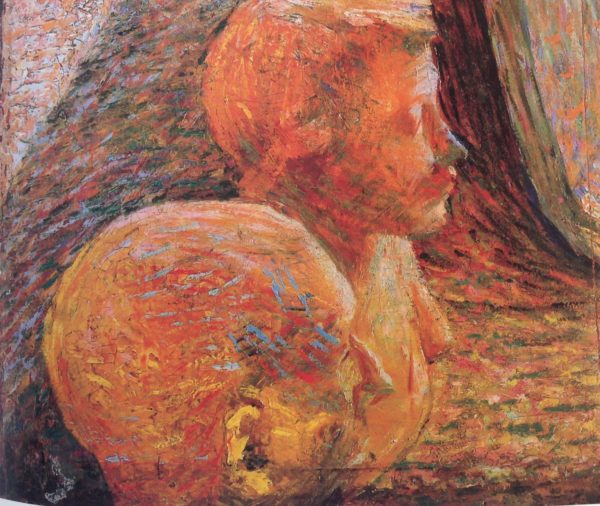«People have the power»
Forza, limiti e contraddizioni di un concetto moderno
a cura di Stefano Visentin
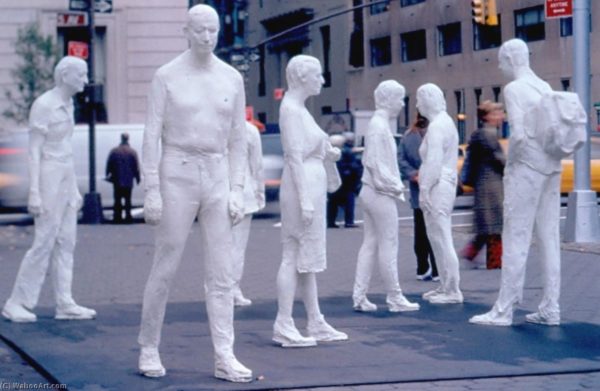 George Segal… Continua a leggere
George Segal… Continua a leggere

 George Segal… Continua a leggere
George Segal… Continua a leggere
Università di Bologna
maurizio.ricciardi@unibo.it

Abstract: The essay analyses three specific ways in which the “people” is politicized in relation to the emergence of capitalist society, of its conflicts and divisions. The semantics of the collective subject is thus determined by its constant opposition to that of society. The first politicization is the one highlighted by the Hegelian left, particularly, by Arnold Ruge and Edgar Bauer. According to them, the “democratic people” is both an end in view and an alternative to the empiric people, and reproduces the distinction between the social and the … Continua a leggere
Universidad Nacional de Quilmes, Argentina
jjbalsa@unq.edu.ar

Abstract: This article analyzes the use of the concept of “people” during Karl Marx’s first decade of intellectual work. In his first writings, it was a main concept. However, the signifier “people” quickly lost presence and practically disappeared in the texts of the second half of the 1840s. In the works dedicated to the French conjuncture from 1848 to 1851, Marx made a direct criticism of the use of the concept of “people” because it veils the perception of the class struggle. However, a careful … Continua a leggere
Università Cattolica del Sacro Cuore Milano
damiano.palano@unicatt.it
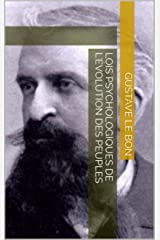
Abstract: This article offers a new reading of Gustave Le Bon’s thought, in particular regarding his conceptions of “crowd”, “race” and “people”. This paper tries to show the inconsistencies in the vision of the “crowd” proposed by Le Bon’s in his books Lois psychologiques de l’évolution des peuples (1894) and Psychologie des foules (1895). In fact, until 1894 Le Bon excluded that it was possible to arrest the process of degeneration of Latin races, and moreover he used the words “crowd”, “people” and “race” as … Continua a leggere
Università degli Studi di Bari Aldo Moro
patricia.chiantera@uniba.it

Abstract: Not only different and opposite issues and demands build the complex ideological constellation of the first American Populism (People’s Party) but also a plurality and variety of political and social forces represent the main agents of the populist protest movements between the nineteenth and twentieth century in America. One of the main contradictions emerging from the political debate led by American populist leaders at the time is the one between the claim for a stronger role of the central government and the implementation of … Continua a leggere
Università di Urbino “Carlo Bo”
stefano.visentin@uniurb.it

Abstract: The entire work of Frantz Fanon is traversed by a theoretical and political critique of the method of the humanities and social sciences, accused of legitimizing European colonial rule. The struggle for the liberation of colonized peoples is thus intertwined with the construction of a new political conceptuality, based on the “direct protagonism” of the damned of the earth. Through the material and symbolic-linguistic mobilization generated by the struggle, the people take on the task of “inventing” a nation through built on new collective behaviors … Continua a leggere
Goldsmiths University of London
a.toscano@gold.ac.uk
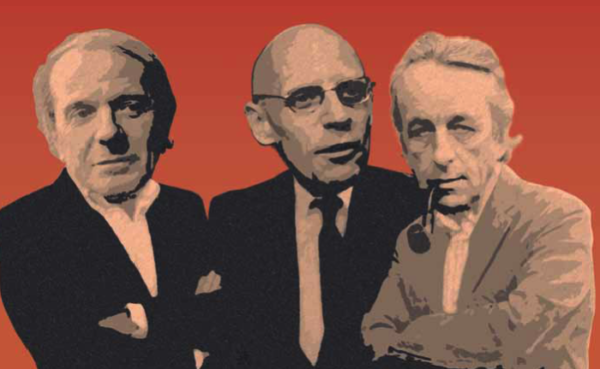
Abstract:The return of the figure of the people to the forefront of radical theorising in France can be contextualised and complicated by contrasting it with the relative hostility or indifference to it in the ambit of la pensée soixante-huit. For a spell, the people was largely displaced by collective formations that sought to escape the nation-state cage of political modernity, not just antagonistic conceptions of class, but all kinds of groups, movements, multiplicities, minorities, etc. This essay probes two theoretical episodes that can contribute to … Continua a leggere
Università degli Studi di Urbino Carlo Bo
rocco.picciotto.maniscalco@gmail.com
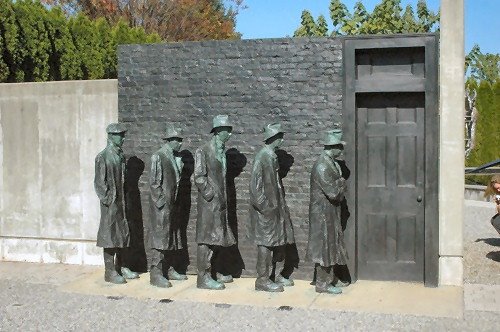 George Segal
George Segal
Abstract: The main objective of this essay is to critically analyze part of the thought of Ernesto Laclau, one of the most important South American intellectuals of the last decades, especially referring to one of his most important works: On Populist Reason. The text will be divided into 3 parts: in the first one, I will briefly introduce the thought of the Argentine philosopher, highlighting the most problematic parts and less consistent with the theoretical framework of Laclau himself. … Continua a leggere
Università degli Studi di Venezia Ca’ Foscari
giorgio.cesarale@unive.it

Abstract: Is neoliberalism a threat to citizenship? This question is answered with the help of Bryan S. Turner’s analysis of the contemporary obsolescence of citizenship in a market-driven society. According to him, the neoliberal citizen has become similar to the denizen, because the former now enjoys less rights; his/her ethical belonging to the State and the people has been weakened; he/she does not participate in political opinion- and will-formation. The argument of this article, though, is that citizenship itself must be re-examined, re-framing it as … Continua a leggere
Università degli Studi di Bologna
roberta.ferrari6@unibo.it

Abstract: To understand the feminist critique of the concept of people means reconstructing the semantics of a struggle on the body of the nation, exploring the relationship, the paradoxes and the contradictions between equality and difference. It means showing the external and internal struggle waged constantly against the political neutralization and the social valorization of the difference by political, social and economic institutions. Above all it means questioning the problem of political unity and the way in which the feminist critique has unveiled its patriarchal character. … Continua a leggere
Università degli Studi di Salerno
adaamendola@unisal.it

Abstract: According to many interpreters, since 2015 we live a “populist moment”. With “populist moment”, they intend to bring very different movements to a common matrix, the reaction to neoliberalism. In a “populist moment”, it would be inevitable, also for progressive and emancipatory movements, express their social demands in populist language. But, on one hand, populist movements are internal responses in the crisis of neoliberalism, more that an opposition to neoliberalism. On the other hand, populism cannot resume heterogeneity and multiplicity of emerging political subjectivies into the … Continua a leggere
 Comizio di Giancarlo Pajetta e Aldo Natoli dopo l’attentato a Togliatti. Luglio 1948
Comizio di Giancarlo Pajetta e Aldo Natoli dopo l’attentato a Togliatti. Luglio 1948
Università degli Studi di Roma Tre
r.finelli@uniroma3.it
Humboldt Universität zu Berlin/Università degli studi di Palermo.
francescafantasia@hotmail.com

Università di Trento
caterina.maurer@gmail.com

Università degli Studi Roma Tre
mariannina.failla@uniroma3.it
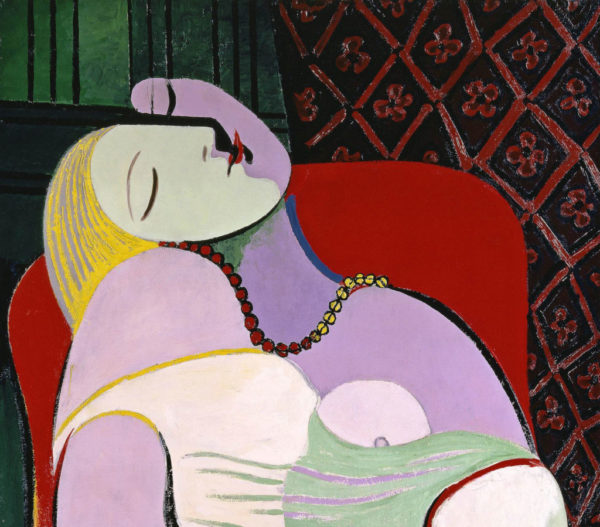
Università degli Studi l’Orientale di Napoli

Università del Salento
fabio.sulpizio@unisalento.it

Bergische Universität Wuppertal
Sergej.grischkan@googlemail.com
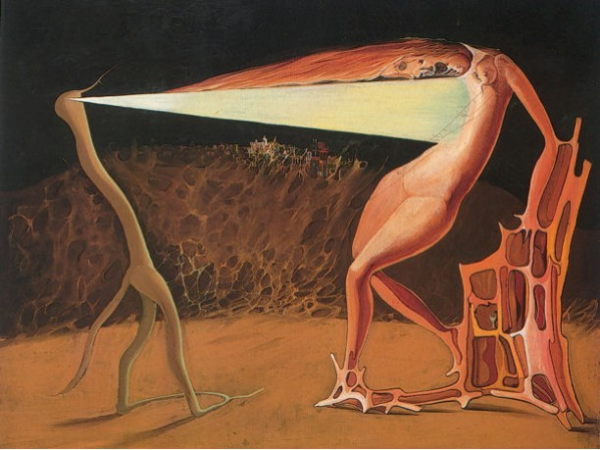
Università di Roma Tre
roberto.finelli@uniroma3.it

Abstract: It is indisputable the enormous influence on French culture that had the Hegelian reading advanced by A. Kojève during the 30s of the last century. Finelli’s essay intends to criticize the basic approach of the Russian-French author and his claim to place the dialectical relationship of lord and servant at the beginning of history. Finelli’s aim is to demonstrate that the “absolute denial”, assigned to the lord in the Phenomenology of the spirit, cannot be a presupposition, as Kojève thought, but can only be a “place”, historically determined, … Continua a leggere
Università di Roma Tre
dangelucci@uniroma3.it
 Abstract: The pair Real and Immanence makes reference to two concepts employed respectively by the psychoanalyst Jacques Lacan and the philosopher Gilles Deleuze. My proposal is that there is a strong affinity between these two concepts, and that they can contribute to clarifying a specific capacity of art, in particular that of cinema. According to scholars who criticize the application of psychoanalysis to the arts, psychoanalysis always misses what should be its object – the work of art – studying the artist’s unconscious (or characters’ unconscious) or the unconscious of the … Continua a leggere
Abstract: The pair Real and Immanence makes reference to two concepts employed respectively by the psychoanalyst Jacques Lacan and the philosopher Gilles Deleuze. My proposal is that there is a strong affinity between these two concepts, and that they can contribute to clarifying a specific capacity of art, in particular that of cinema. According to scholars who criticize the application of psychoanalysis to the arts, psychoanalysis always misses what should be its object – the work of art – studying the artist’s unconscious (or characters’ unconscious) or the unconscious of the … Continua a leggere Institut des Humanités dans la Médecine, Université de Lausanne – CHUV
ugobalzaretti@hotmail.com

Abstract: In dealing with the Hegelian conception of folly, Michel Foucault does not focus primarily on the anthropology of the Encyclopedia that praised Philippe Pinel’s therapeutic revolution. Foucault is more interested in the Phenomenology of Spirit and in its interpretation of Diderot’s satire Rameau’s Nephew. Accordingly, he investigates madness not on the basis of the soul as the still natural state of consciousness, but rather in the heart of the spirit itself when it is already articulated as social praxis, language and … Continua a leggere
 invio in corso...
invio in corso...
 …
… 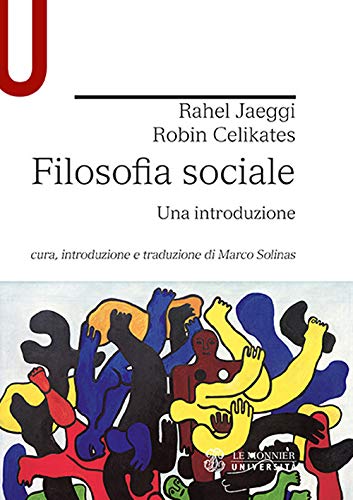
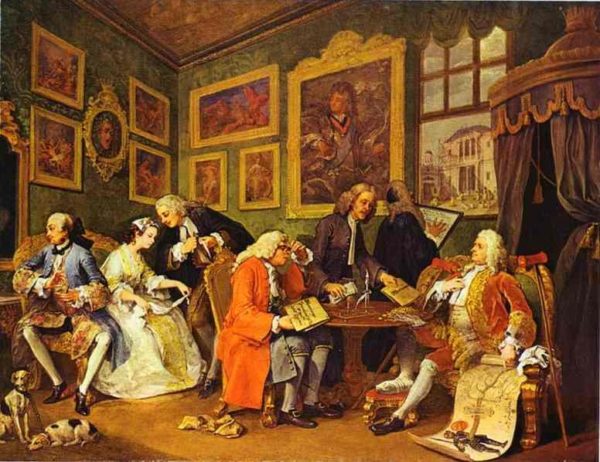
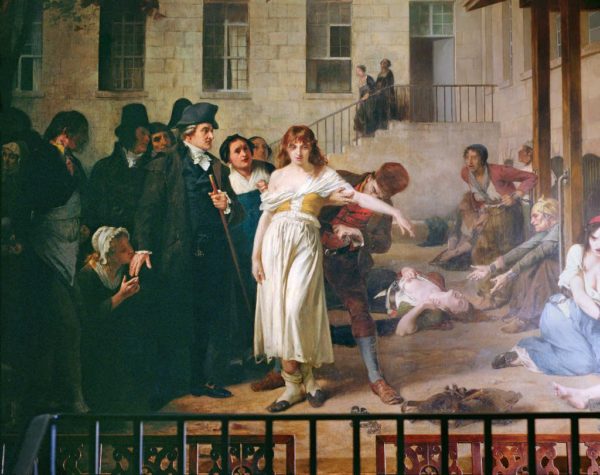 …
… 